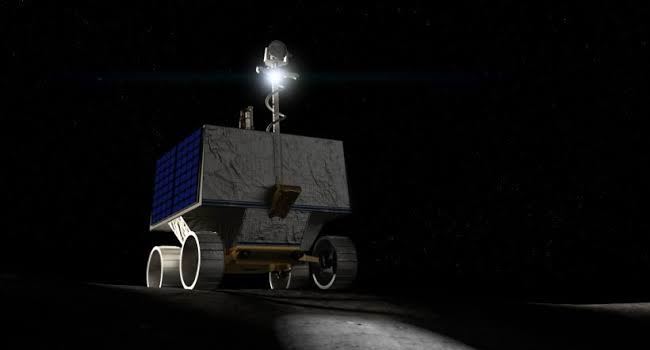News
NASA sends mobile robot to search for water on the Moon

American space agency, NASA is sending a mobile robot to the south pole of the Moon to get a close-up view of the location and concentration of water ice in the region.
The probe is expected for the first time to sample the water ice at the same pole where the first woman and next man will land in 2024 under the Artemis program.
Reports say the Viper Lunar Rover which is about the size of a golf cart, will roam several miles, using its four science instruments — including a 1-meter drill — to sample various soil environments.
Planned for delivery in December 2022, VIPER will collect about 100 days of data that will be used to inform development of the first global water resource maps of the Moon.
READ ALSO: Facebook set to launch dedicated news tab
This will bring NASA a significant step closer towards NASA’s ultimate goal of a sustainable, long-term presence on the Moon – making it possible to eventually explore Mars and beyond.
“The key to living on the Moon is water – the same as here on Earth,” said Daniel Andrews, the project manager of the VIPER mission and director of engineering at NASA’s Ames Research Center in Silicon Valley.
“Since the confirmation of lunar water-ice ten years ago, the question now is if the Moon could really contain the amount of resources we need to live off-world. This rover will help us answer the many questions we have about where the water is, and how much there is for us to use,” he added.
Join the conversation
Support Ripples Nigeria, hold up solutions journalism
Balanced, fearless journalism driven by data comes at huge financial costs.
As a media platform, we hold leadership accountable and will not trade the right to press freedom and free speech for a piece of cake.
If you like what we do, and are ready to uphold solutions journalism, kindly donate to the Ripples Nigeria cause.
Your support would help to ensure that citizens and institutions continue to have free access to credible and reliable information for societal development.
























